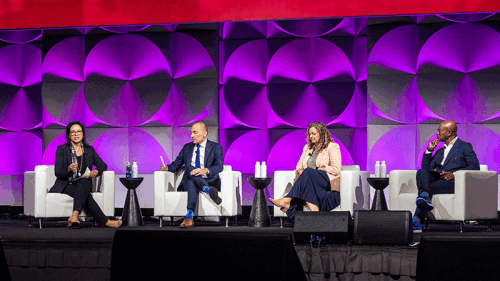Though New York City recently surpassed its own high-water mark with more than 4 million private sector jobs, the unemployment rate is well above the national average at 7.9 percent. With more than half the jobs in the city paying less than $38,000 a year and average rents rising 75 percent from 2000 to 2012, city Comptroller Scott M. Stringer is partnering with New York University (NYU) global research professor Richard Florida, author of The Creative Class and The Great Reset, to bring renewed focus on the city’s inequality issues.
“If the price of admission to New York City continues to be a $1 million condo, the city will die,” Stringer said at a conference called Onramps for Opportunity at NYU last week. “We need to build on-ramps of opportunity to the jobs of the future.”
Related: Richard Florida’s writings for Urban Land | Register for ULI Fall Meeting in NYC
Stringer, who also was the two-time borough president of Manhattan, said the city is also heading into a digital Stone Age, with 3 million New Yorkers lacking basic internet access, making it difficult for them even to apply for a job.
Florida and the NYU School of Professional Studies are launching a new certificate in Economic Development and Creative Cities, designed for “real-world city builders.” Focusing on applied learning across all five New York City boroughs, Florida said the program’s tuition is meant to be “economical” at about $10,000.
In his remarks, Florida called for a higher minimum wage, tied to 50 percent of the median wage in the city. “As a country, we’ve decided in the past to pay more for TVs and refrigerators, to pay more for a cup of coffee or to take care of our kids. . . . The service sector helps make the knowledge economy thrive.”
Florida also called for increased spending on education for all ages, saying, “Every job in our future is a high-tech job.”
He also called for increased spending on infrastructure and transit. Stringer pointed out that though most of New York City’s transit is focused on getting people into Manhattan, workers living in Queens struggle to commute to Brooklyn, where many of the new creative sector jobs are located.
Florida calls himself an optimist. “We can’t just bemoan the situation,” he said. “We can’t just hit the brakes on progress. That would be like burning down the factory. . . . For sure, the city’s best days are ahead.”
Florida cited NYU itself as an experiment in subsidized housing, with many of the faculty living on campus in below-market-rent apartments, raising families in just two bedrooms.
In a question-and-answer session before the event, Florida said governments should not be placing bets on individual sectors, but instead should be investing in education, talent, and open space, and in improving the quality of places, parks, and schools.
Errol Louis, a host of cable station NY1’s Inside City Hall, who moderated a panel following Stringer and Florida’s remarks, said that implementing these priorities are “easier said than done,”. He noted that the city is facing a potential transit strike on the Long Island Railroad. He also cited the potential backlash in New York City against certain progressive policies that helped Mayor Rob Ford get elected in Toronto.
http://youtu.be/GPv3s4-S26w?t=12m5s




